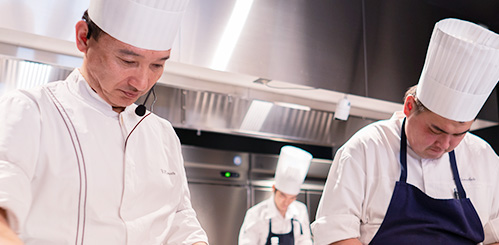[Tokyo Tatemono 2/2] Regenerative Experiential Program by FFI”RegeneAction Study Tour 2024″ Report
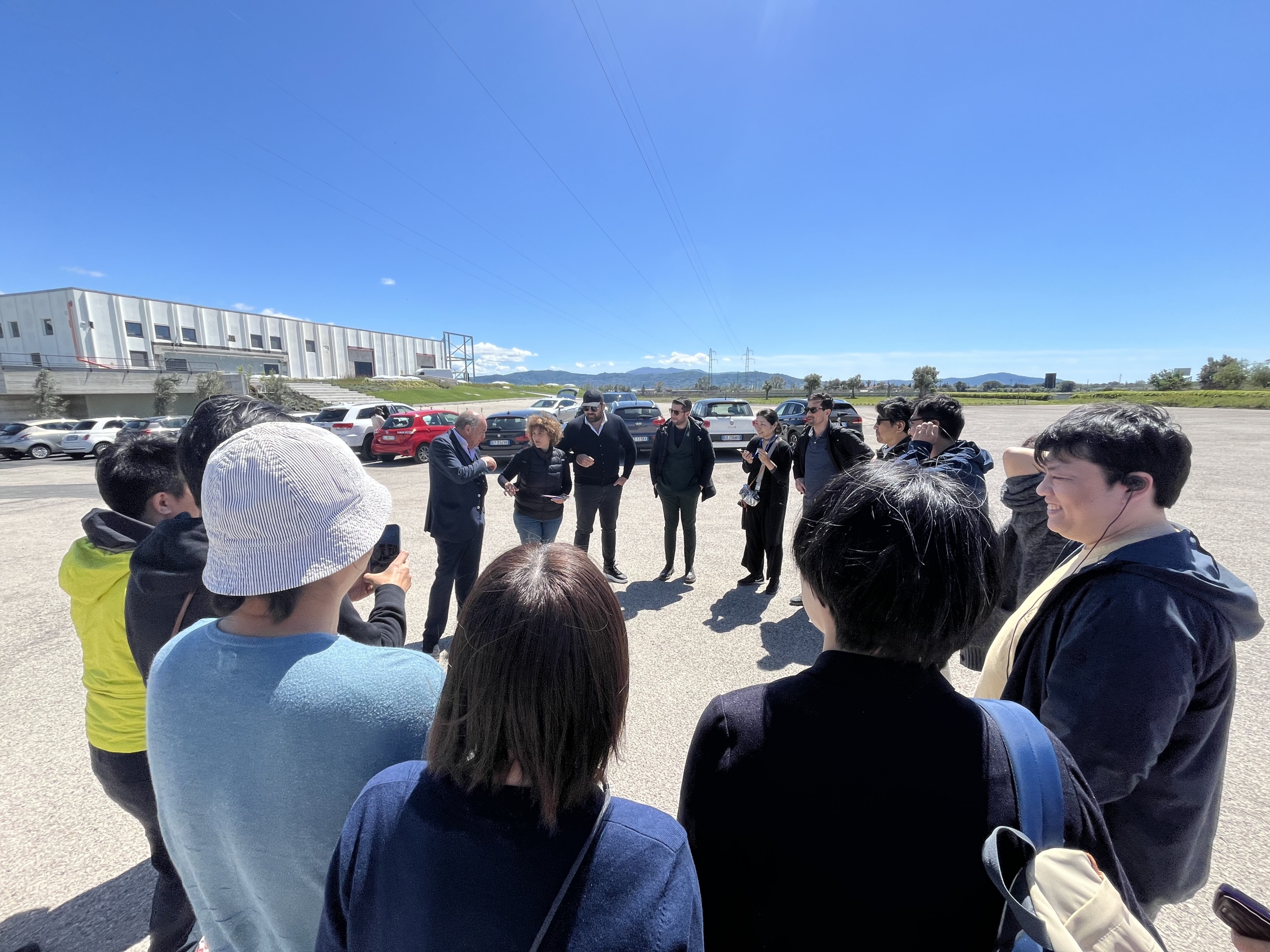
Following the workshop at the Basque Culinary Center (BCC), the Future Food Institute (FFI) held a hands-on program in Italy for Japanese participants called the “RegenerAction Study Tour.”
Based in Bologna, Italy, FFI is recognized as the world’s largest global network for building ecosystems for solving food-centric social issues centered.
A living lab has already been established in the Italian village of Polica with a new living lab planned for Florence. Through interactions and hands-on experiences with living lab stakeholders in these two cities, the study tour aimed at deepening understanding of the comprehensive ecology and regenerative activities advocated by FFI. What kind of regenerative actions is FFI actually taking? Tokyo Tatemono’s Akihiro SAWADA and Yuki YOSHIDA, who participated in the tour, shared their findings in this report on the tour.
FFI’s Regenerative Approach
Since 2021, FFI has been holding the “RegenerAction” international conference in Polica to learn more about about regenerative activities, and to share and disseminate related information.
“In response to this, ‘RegenerAction Japan” was launched in 2023. We thought that in order to accelerate the regenerative movement in Japan, providing people with the opportunity to experience firsthand easy-to-understand examples is important. The result was our planning of this tour with FFI. Expanding on last year’s event, we incorporated visits to active players in this year’s program so participants could get a deeper understanding and feeling for regenerative activities even more,” explained Akihiro SAWADA
The first day began with a visit to Montepardi Farm, which will be the base of the Florence Living Lab.
Akihiro SAWADA described their visit, “Montepardi, a former Medici estate, is located in the suburbs, about a 30-minute drive from the city of Florence. Today it has become a hub of diverse agriculture innovation including winemaking. Our visit included a tour of the facilities and learning how production and product development will be carried out in a regenerative way in the future.”
On Day Two, the tour moved to the village of Polica, where promotion of a regenerative “Mediterranean diet” is contributing to the increased regional economic competitiveness. The program participants visited a buffalo dairy farm where they produce mozzarella cheese and a white fig production site.

Akihiro SAWADA shared his insights, “One reason why these players are described as regenerative is their practice of traditional methods. Preserving traditional methods is not only done in Italy, but also in Japan, but that is not enough when profits are taken into consideration. Moreover, if not pursued properly, this approach can even lead to the unsustainability of the business. By connecting the dots between producers and promoting the entire area as ’Greater Polica’, FFI has been working to revitalize the local economy. Take for example, figs. This common agricultural product had been produced using traditional methods with a heavy reliance on the producers senses. Today they are incorporating technology and conducting research with universities to determine at the ideal drying temperature to improve flavor. They are also improving the quality of their products by coating them in chocolate, for example, and adding value to their products, making them more internationally competitive.”
Deepening understanding through on-site tasting
During meals on the journey, local Polica players who had been observing the tour brought their own products to the restaurant. Participants dined together with them and tasted their products,and listened as they once again shared their production methods and thoughts.
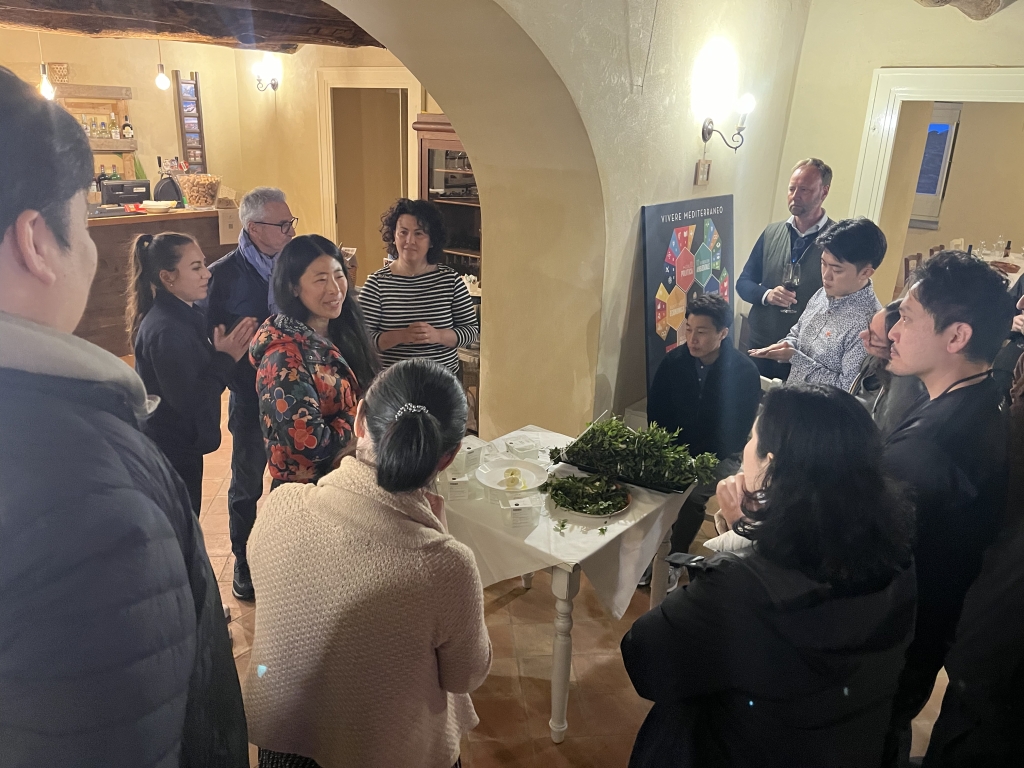
Yuki YOSHIDA shared a memorable encounter on the tour, “For example, we had planned to visit a fishing port to meet with an oil sardine producer, but the trip was cancelled due to bad weather. A fisherman then came to our dinner and explained to us about his activities and how they use large-mesh fishing nets which allows the small sardines to escape, thus preventing overfishing and helps protect resources. He proudly noted their fishing has been certified by Patagonia. After his explanation, he invited us to enjoy a dish made with their catch of sardines. His way of explaining things an his story were very helpful in helping us to better understand the value of the sardines.”
“I felt that the discussion was very lively not only because we were all regenerative-oriented player, but also because food is something that resonates with everyone. This ecosystem that connects multiple players in a multidisciplinary way. From startups and academia to the public sector, FFI has an incredible ability to bring new players and interconnect by using an ecosystem that links multiple players in a multidisciplinary way. The existence of an ecosystem that can do this was a major awakening for the participants,” remarked Akihiro SAWADA.
| Regenerative agriculture has been attracting attention worldwide as the next phase of sustainability, but the issue is that the word has taken on a life of its own and is not being put into practice. “This was the case with two tour participants: a chef who won a Michelin Green Star and a startup that is using seaweed to conserve the environment. While they each understood their own approaches as sustainable actions, but they said that this tour made them realize how organic regenerative networks are. They also learned that regenerative not only looks at environmental metrics, but also can be grasped in a broader and more loosely defined context. Moreover, they sensed the possibilities for future expansion of their activities,” added Akihiro SAWADA. Yuki YOSHIDA shared her views on the changing awareness of the regenerative concept,“This was my first time to participate, but someone who participated last year told me how they are using the word regenerative a lot more often than last time. I certainly got the impression that the producers were saying in their own words how their approach is actually regenerative. Through FFI’s steady activities, I felt that the concept of regenerative has spread throughout the country over the past year and is now a concept of substance.” |
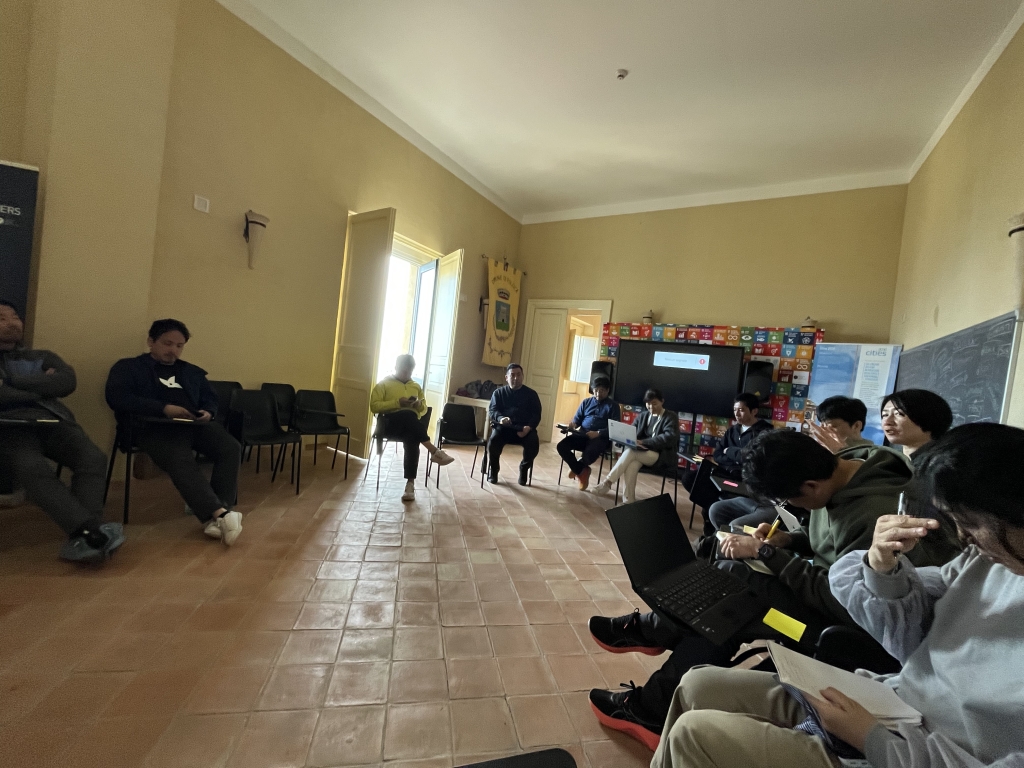
Although it was only a short four-day trip, the two say that visiting the places in person and deepening friendships with the players was very rewarding.
“During tour, we visited Parco Paestum e Velia archaeological park and saw the ruins of an ancient Greek temple stand. While the regenerative concept has recently become the focus of growing interest, its historical legacy came alive when we learned ancient farming and fishing methods and actually saw and touched the ruins. I realized that not only connections with people but also connections over time are important,” recalled Yuki YOSHIDA.
Akihiro SAWADA closed the report with his views on Regeneration and his hopes for the future, “I think the regenerative concept closely resembles how Japanese people have long strived for coexistence with nature in life. That’s why I feel it will be important in the future to interpret regenerative in a way that is unique to the Japanese and then move forward on our own initiative and in our own way. In that sense, I think that ‘RegenerAction Japan’ is a place where like-minded people can gather and communicate Japan’s activities to the world, creating a place for international collaboration.”
The second RegenerAction Japan will be held on November 25, 2024. We hope you will come to the event and use it as an opportunity to think about what kind of actions Japan can take to the world.
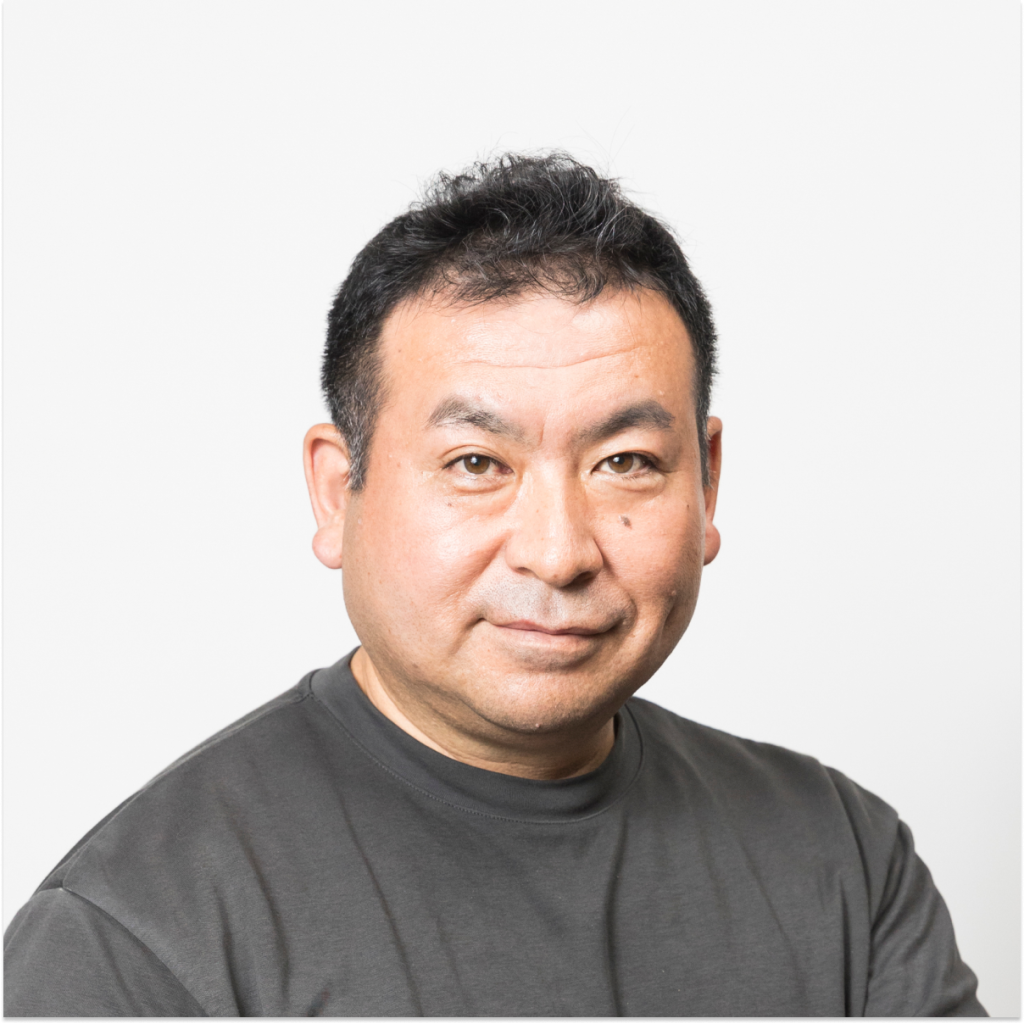
Akihiro “Rocky” SAWADA
Born in Obihiro, Hokkaido. Following graduation from the Faculty of Environment and Information Studies at Keio University, joined the housing business division of Tokyo Tatemono Co., Ltd., and stationed at Tokyo Tatemono in the US, where he was in charge of cross-border transactions of domestic and international real estate. Since 2021, he has been supporting co-creation and innovation with a variety of people centered on FOOD in order to realize a “regenerative” society beyond sustainability from Tokyo.
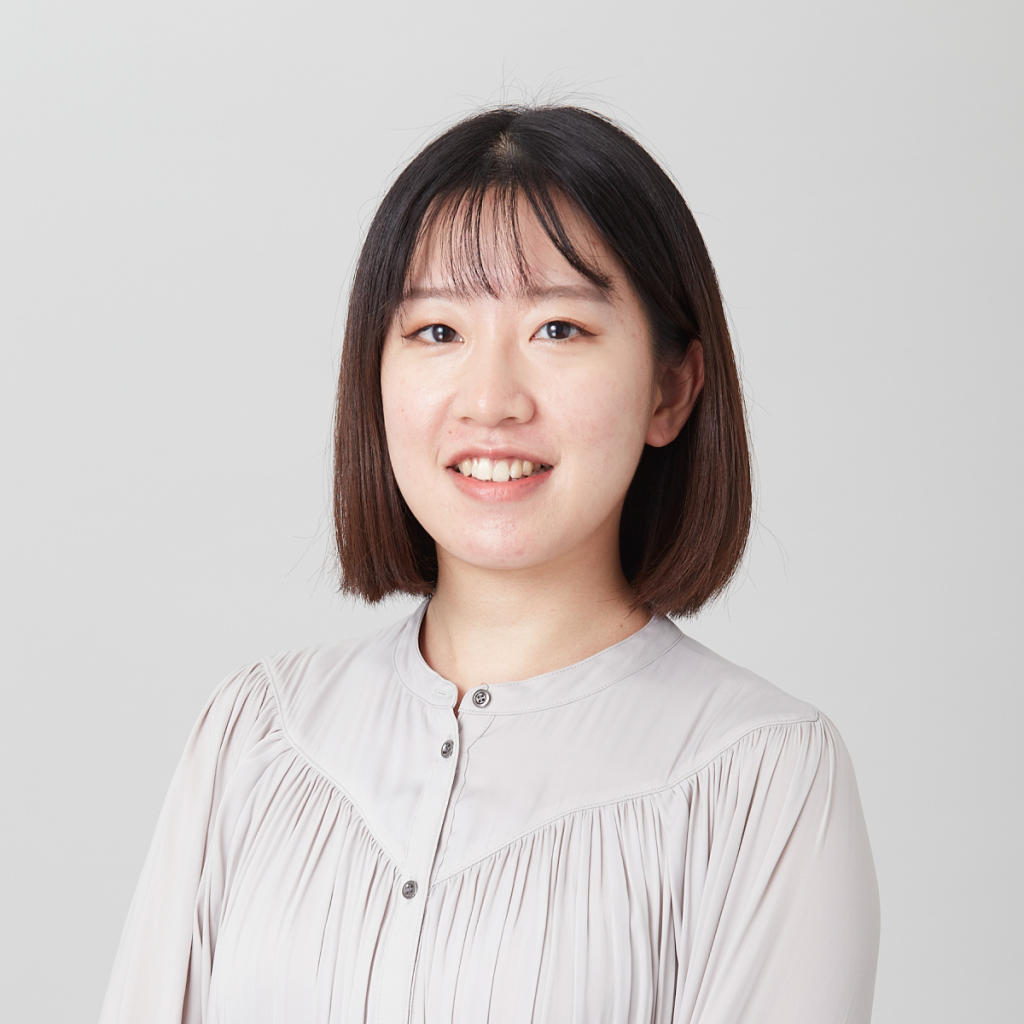
Yuki YOSHIDA
Majored in electronic physics (high frequency circuit theory) at Waseda University’s School of Fundamental Science and Engineering. Joined Tokyo Tatemono Co., Ltd., in 2020. Placed in charge of office building management in the Shibuya and Roppongi areas during the challenging pandemic times of repeated emergency declarations. Conducted demonstration experiments to explore new office building formats and the potential of offices in addition to her property management responsibilities. Joined the TOKYO FOOD INSTITUTE as its secretariat from 2023. Involved in the management of the Future Food Innovation Workshop and Challenge Kitchen, as well as the planning and management of RegenerAction Japan.

